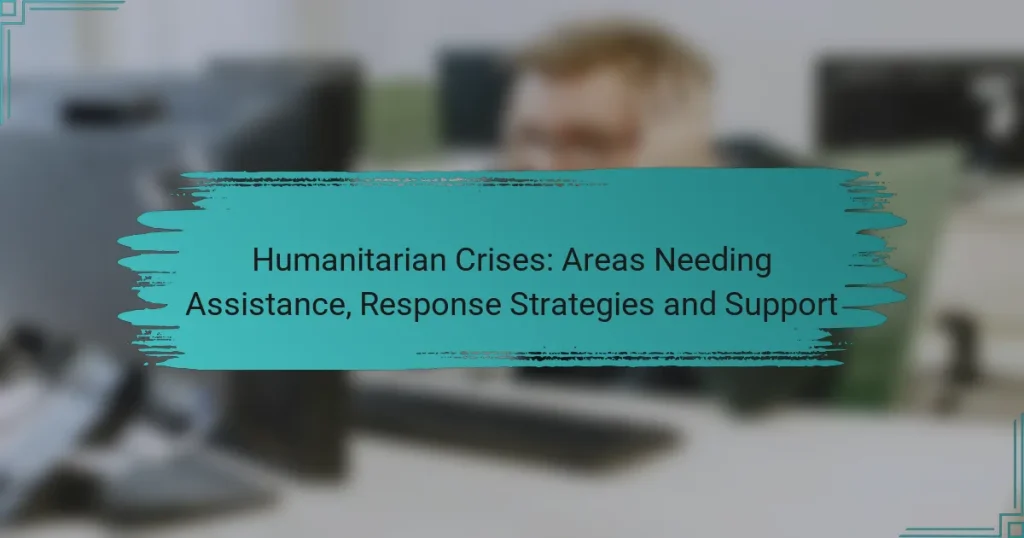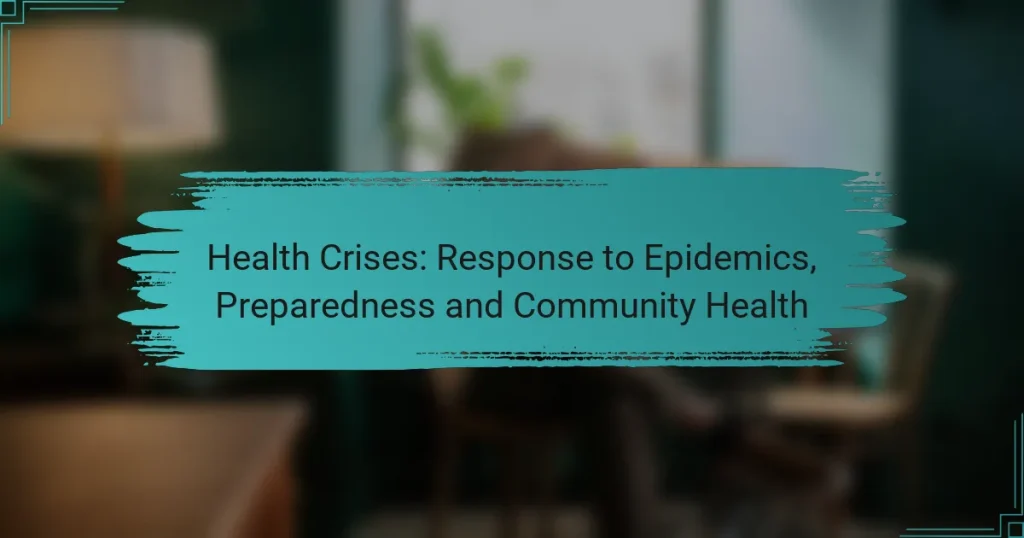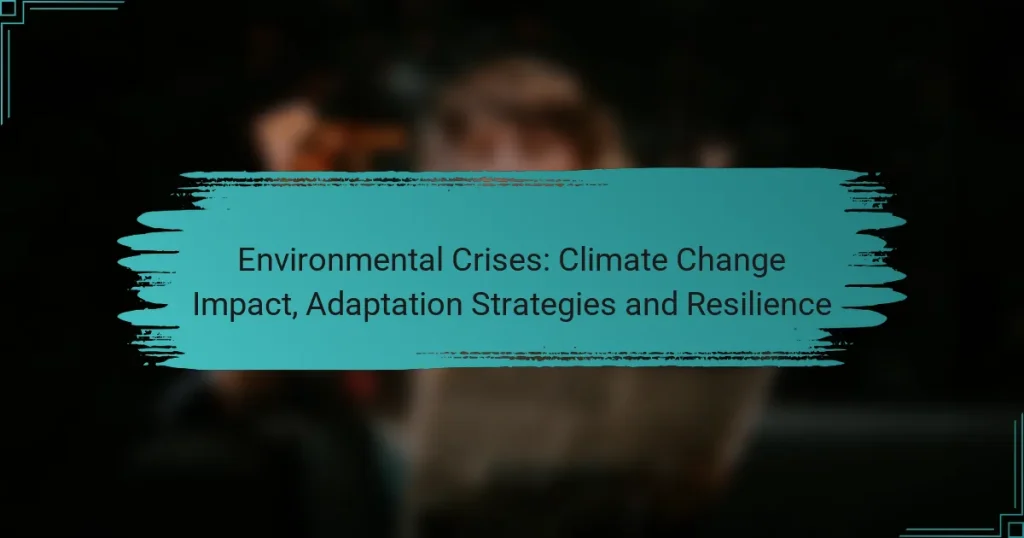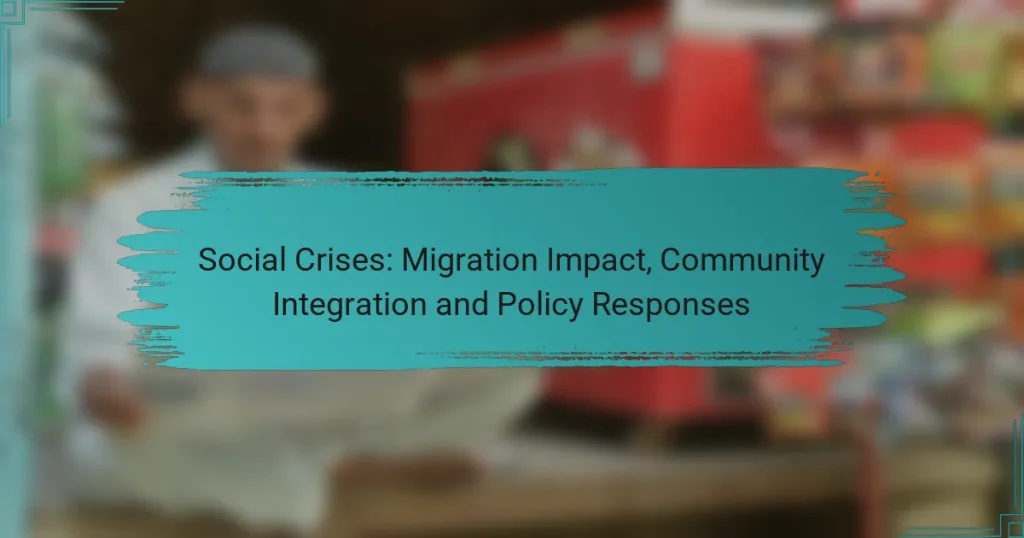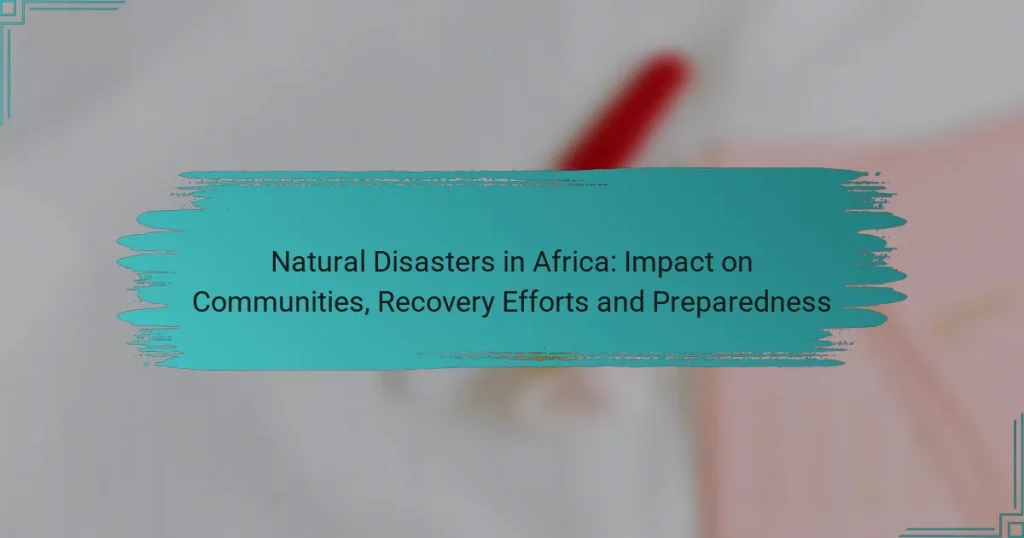Africa faces a range of crises that profoundly affect its stability and development, including political, economic, social, environmental, and health challenges. Each type of crisis presents distinct obstacles, often interlinked, that can undermine governance, disrupt economies, and threaten social cohesion. Understanding these crises is essential for addressing their root causes and fostering sustainable solutions across the continent.
Economic Crises: Effects of Inflation, Recovery Strategies and Financial Stability
Health Crises: Response to Epidemics, Preparedness and Community Health
Political Instability: Staying Informed During Elections and Civic Engagement
Environmental Crises: Climate Change Impact, Adaptation Strategies and Resilience
Social Crises: Migration Impact, Community Integration and Policy Responses
Natural Disasters in Africa: Impact on Communities, Recovery Efforts and Preparedness
What are the main types of crises in Africa?
The main types of crises in Africa include political, economic, social, environmental, and health crises. Each type presents unique challenges that can significantly impact the continent’s stability and development.
Political crises
Political crises in Africa often arise from issues such as governance failures, corruption, and civil unrest. These crises can lead to instability, with governments facing protests or coups that disrupt national order.
For example, countries like Sudan and Zimbabwe have experienced significant political turmoil, resulting in changes in leadership and policy shifts. Addressing political crises requires transparent governance and active citizen engagement to foster stability.
Economic crises
Economic crises in Africa can stem from factors such as inflation, unemployment, and external debt. These crises often lead to reduced living standards and increased poverty levels across affected nations.
Countries like Zambia have faced economic challenges due to fluctuating commodity prices and heavy reliance on mining. To mitigate economic crises, governments may need to diversify their economies and implement sound fiscal policies.
Social crises
Social crises in Africa are characterized by issues like inequality, ethnic tensions, and displacement. These crises can result in social fragmentation and conflict, affecting community cohesion.
For instance, the ongoing conflicts in the Central African Republic highlight the impact of social divisions. Addressing social crises requires inclusive policies that promote equity and social justice.
Environmental crises
Environmental crises in Africa include challenges such as climate change, deforestation, and water scarcity. These issues threaten food security and livelihoods, particularly in rural areas.
Countries like Ethiopia face severe droughts that impact agricultural productivity. Strategies to combat environmental crises involve sustainable resource management and investment in renewable energy sources.
Health crises
Health crises in Africa often manifest through outbreaks of diseases like HIV/AIDS, malaria, and more recently, COVID-19. These health challenges strain healthcare systems and hinder economic progress.
For example, the Ebola outbreak in West Africa showcased the vulnerabilities in public health infrastructure. Strengthening health systems and ensuring access to healthcare are crucial steps in addressing health crises effectively.
How do political crises impact African nations?
Political crises significantly disrupt African nations by undermining governance, destabilizing economies, and affecting social cohesion. These crises can lead to widespread consequences, including loss of public trust, economic downturns, and increased violence.
Government instability
Government instability in African nations often results from power struggles, corruption, or ineffective leadership. This instability can lead to frequent changes in administration, which disrupts policy continuity and hampers development efforts.
For example, countries like Zimbabwe and Sudan have experienced prolonged periods of government instability, resulting in economic decline and social unrest. Citizens may face challenges such as reduced public services and increased unemployment during these turbulent times.
Civil unrest
Civil unrest typically arises from dissatisfaction with government actions, economic hardships, or social inequalities. In many African nations, protests and demonstrations can escalate into violence, leading to significant casualties and property damage.
Countries such as Nigeria and Ethiopia have seen civil unrest fueled by issues like police brutality and ethnic tensions. It is crucial for governments to address the root causes of discontent to prevent escalation and maintain peace.
What are the causes of economic crises in Africa?
The causes of economic crises in Africa are multifaceted, often stemming from a combination of internal and external factors. Key contributors include debt accumulation, commodity price fluctuations, and corruption, each playing a significant role in destabilizing economies across the continent.
Debt accumulation
Debt accumulation occurs when countries borrow beyond their means, leading to unsustainable financial obligations. Many African nations have taken on substantial loans from international lenders, which can result in high debt-to-GDP ratios and increased vulnerability to economic shocks.
To manage debt effectively, countries should prioritize transparent borrowing practices and focus on investments that yield economic growth. Regular assessments of debt sustainability are crucial to avoid falling into a debt trap, where repayments hinder development efforts.
Commodity price fluctuations
Commodity price fluctuations significantly impact African economies, many of which rely heavily on exports of raw materials like oil, minerals, and agricultural products. Sudden drops in global prices can lead to revenue shortfalls, affecting government budgets and public services.
To mitigate risks from price volatility, countries can diversify their economies and develop sectors beyond commodities. Establishing stabilization funds can also help buffer against price shocks, allowing governments to maintain essential services during downturns.
Corruption
Corruption undermines economic stability by diverting resources away from productive uses and eroding public trust. In many African nations, corrupt practices can lead to misallocation of funds, reduced foreign investment, and increased costs for businesses.
To combat corruption, governments should implement strong legal frameworks and promote transparency in public spending. Encouraging civic engagement and whistleblower protections can empower citizens to hold officials accountable, fostering a more equitable economic environment.
How can social crises be addressed in African communities?
Addressing social crises in African communities requires a multifaceted approach that emphasizes local involvement and sustainable solutions. Engaging community members and implementing educational programs are key strategies that can foster resilience and promote social cohesion.
Community engagement
Community engagement involves actively involving local residents in decision-making processes and initiatives aimed at resolving social issues. This can take the form of town hall meetings, focus groups, or collaborative projects that encourage participation and ownership.
One effective method is to establish community committees that represent diverse groups, ensuring that all voices are heard. These committees can help identify pressing issues, prioritize actions, and mobilize resources effectively.
Education initiatives
Education initiatives play a crucial role in addressing social crises by equipping individuals with knowledge and skills necessary for personal and community development. Programs can range from vocational training to health education, tailored to the specific needs of the community.
For instance, integrating life skills and conflict resolution into school curricula can empower youth to make informed decisions and reduce tensions. Collaborating with local organizations can enhance the reach and impact of these educational efforts.
What role does climate change play in environmental crises in Africa?
Climate change significantly exacerbates environmental crises in Africa by altering weather patterns, leading to extreme weather events, droughts, and floods. These changes threaten agricultural productivity, water availability, and biodiversity, which are crucial for the livelihoods of many African communities.
Resource scarcity
Climate change contributes to resource scarcity in Africa by diminishing water supplies and reducing arable land. As temperatures rise and rainfall becomes less predictable, regions that rely on agriculture face declining crop yields, which can lead to food shortages and increased competition for remaining resources.
For instance, in areas like the Sahel, prolonged droughts have severely impacted farming and livestock, pushing communities to seek alternative sources of water and food. This scarcity can lead to conflicts over resources, further destabilizing affected regions.
Displacement of populations
Environmental crises driven by climate change often result in the displacement of populations as communities are forced to leave their homes in search of better living conditions. Rising sea levels, desertification, and extreme weather events can render traditional habitats uninhabitable, prompting migration to urban areas or other countries.
In countries like Somalia and Sudan, climate-induced displacement has led to increased urbanization and strain on city resources, creating challenges in housing, healthcare, and employment. Addressing these issues requires coordinated efforts from governments and international organizations to support affected populations and manage migration effectively.
How do health crises affect public health systems in Africa?
Health crises significantly strain public health systems in Africa by overwhelming resources and disrupting essential services. These crises can lead to increased mortality rates and hinder the ability to manage other health issues effectively.
Increased disease prevalence
Health crises often result in a rise in disease prevalence, as weakened health systems struggle to provide adequate care and preventive measures. For instance, during outbreaks of infectious diseases like Ebola or COVID-19, routine vaccinations and treatments for chronic conditions may be neglected.
As a consequence, communities may experience higher rates of preventable diseases such as measles or malaria. This increased disease burden can lead to a vicious cycle, where the health system becomes further overwhelmed, making it even harder to control outbreaks and provide necessary care.
To mitigate increased disease prevalence, public health systems should prioritize strengthening surveillance and response mechanisms. Investing in community health education and ensuring access to essential services can help reduce the impact of health crises on disease rates.
